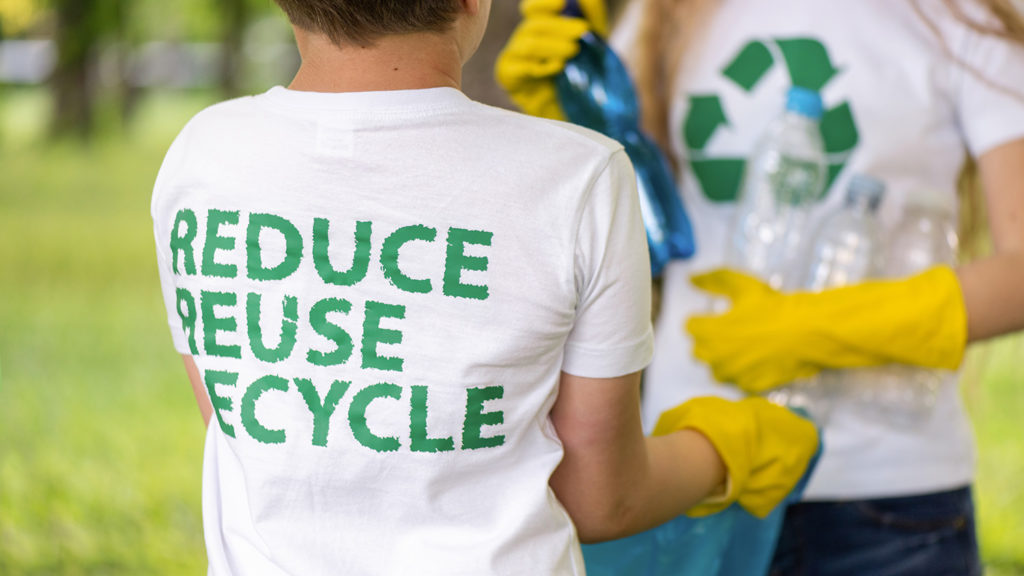September is an important month for children – school starts again!
We must remember, however, that there is more than just the subjects taught in the classroom. There is something fundamental that we are all committed to passing on to the youngest children from the very beginning: respect for the environment and the importance of recycling.
How to do it effectively?
In this article, we’ll give you some useful tips to help future generations be more aware of the world they experience every day.
Because the future of the planet depends on them too!
Purchases
When children grow up and come with us to the supermarket for groceries, let’s educate them early on making conscious choices when shopping. The key is to find some time to explain to them that the quality of what you buy is crucial, but so is understanding the sustainability of many other aspects related to the product: the material with which it is packaged (packaging), where it comes from (supply chain and traceability), disposal (where can we throw it away when it is finished? ), and recyclability.
Environment
Let’s take our children to play freely outside, in contact with that environment that is so important and vital for all of us, and for them first and foremost. Let’s help them discover new landscapes and touch them with their own hands, educate them to fully understand the colours, scents, and sounds of nature, explaining to them the great importance of every element present, from animals to plants, and how essential it is to preserve it in all its beauty.
Home
Home is the first “school” for every child. Let’s not only get into the habit of teaching our little ones a more sustainable lifestyle, but let’s try to hold them accountable, for example, by entrusting them with small actions to perform on a daily basis, such as throwing garbage correctly so that it can be recycled, not wasting water, paying attention to the lights that are on.
Recycling & Reuse
Children grow up all too fast, don’t they? J Let’s take advantage of this to impart one of the most important lessons to them: what we can’t use today can be turned into a new, valuable resource! From clothes to toys we no longer use, everything can have a second life. Accompanying children to understand that everything has value is the first step in making them respectful and aware adults. And there is also room for creative recycling, to free their imagination while learning!
Play
Learning is most effective while having fun. From fairy tales to books (we have recounted some of them in this article), from simpler games for little ones to Apps for those who are a few years older, today there are many forms of entertainment dedicated to children that not only entertain, but also educate them to be civic-minded and have respect for the planet they inhabit.
Technology
Let’s use the web! There are so many digital resources online that can help us explain how to preserve environmental resources, how so many products are made, and how recycling takes place. One of these is just Are you R, with its Facebook and LinkedIn pages full of useful content and information!
Last but not least, let’s not forget that we adults are the ones who have to set a good example.
Children soak up everything you do. One correct action of yours is worth a thousand lessons! You live first by respecting the environment (and others). Check out recycling projects dedicated to the school world in this article, too!
[Cover Image: Image by frimufilms on Freepik]
